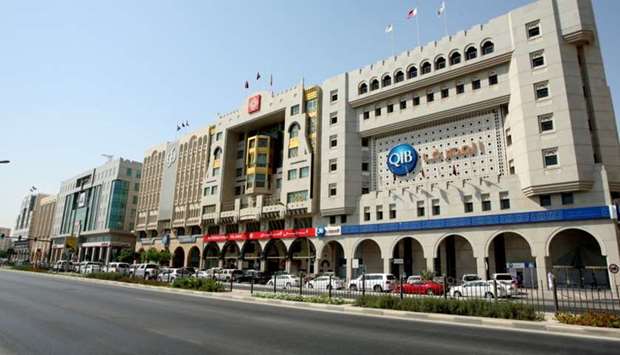The total assets of Qatar’s four Islamic banks rose by 1.77%, while their financing assets climbed by 3.81% in the first nine months of 2018, Oxford Business Group has said in a report.
The sector also remained profitable during this period, with y-o-y (year-on-year) net profit showing an 8.36% gain. Importantly, the margins secured during this “challenging” period were made without any significant deterioration in financial stability indicators, OBG said in its ‘The Report: Qatar 2019’.
According to Malaysia-based Islamic Financial Services Board, Qatar’s four Islamic banks - QIB, Masraf Al Rayan, QIIB and Barwa - Bank showed a capital adequacy ratio of 17.3% in the second quarter of 2018, against 17.5% at the end of 2016.
Non-performing financing, meanwhile, showed only a modest gain over the same period, rising from 0.6% to 1.2%.
Qatar’s Islamic banks have grown more quickly than their conventional counterparts over recent years, and collectively posted a 9.1% growth in assets over 2017 to continue this trend. However, the diplomatic crisis that began in 2017 led to concerns regarding the performance of the nation’s Islamic financial institutions.
Following the June 2017 economic blockade of the country, the government “moved quickly” to defend the banking sector with injections of public liquidity, a capability it enjoys thanks in large part to Qatar’s sizeable reserves and the revenues it receives from its hydrocarbons exports.
“Qatar’s four Islamic banks have also to some degree been protected from the diplomatic rift by their focus on the domestic market,” OBG said.
Qatar’s Islamic banks operate in a highly competitive domestic market in which they compete with seven conventional national players, licensed by the Qatar Central Bank. More competition comes in the form of seven foreign banks, which have played an important part in Qatar’s economic life for over half a century.
As well as the institutions licensed by the QCB, a number of banks operate from within the distinct regulatory environment of the Qatar Financial Centre, although their activity is generally conducted through relatively small representative offices. In 2011, the QCB instructed conventional banks to cease accepting deposits through Islamic windows and wind down their Shariah-compliant operations (windows or subsidiaries).
This has helped Qatar’s four full-fledged Islamic banks to establish themselves as universal institutions, offering Shariah-compliant services across the areas of corporate and retail banking, including the increasingly important small and medium-sized enterprise segment, as well as the more specialist fields of private banking, real estate finance, structured finance, investment and asset management, OBG noted.
Qatar’s Islamic banks operate according to the same regulatory framework as their conventional counterparts, and are overseen by the QCB. On matters of Shariah, the country operates the self-regulation model, whereby Islamic finance institutions turn to their own Shariah supervisory boards for rulings on new products and services.
The QCB has not established a centralised Shariah board to determine policy and pronounce on points of law but has recourse to Shariah scholars on an as-needed basis should a regulatory question arise.
“While the lack of a centralised Shariah advisory board is sometimes viewed as a hurdle to sector development, the consistency of Shariah rulings is greatly aided by the fact that Shariah advisers normally sit on more than one of the banks’ proprietary boards. Islamic institutions also have recourse to a number of external references, including the Supreme Shariah Council attached to the Ministry of Awqaf and Islamic Affairs and the accounting, auditing, governance and ethical principles established by the Accounting and Auditing Organisation for Islamic Financial Institutions,” OBG noted.
The regulatory framework supporting Qatar’s Islamic finance sector may soon, however, undergo a significant alteration, it said.
In 2018, the QCB revealed that it was planning to establish a central Shariah committee for Islamic banks as part of a broader reform outlined by the Second Strategic Plan for Financial Sector Regulation (2017–22).
Qatar is one of a number of Gulf jurisdictions to come to the conclusion that a centralised system is the solution to the challenge of a rapidly evolving market.

